3 MIN READ
How to Perform a Root Dig
July 30, 2022
The best way to assess the potential damage done to your corn roots is by performing a root dig. The amount of node damage found from the root dig can help you determine what adjustments to make to your insect management plan next season. Below is the step-by-step process of how to properly perform a root dig.
Dig Up the Roots
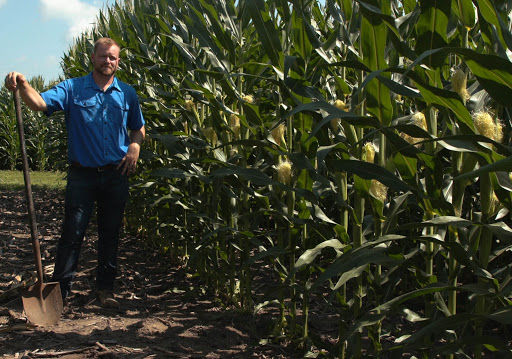
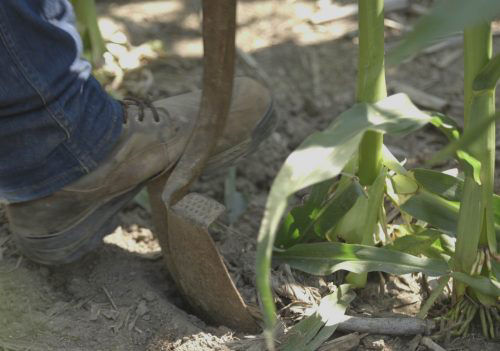
You want to select five consecutive roots from four different areas in your field to properly assess the damage potential. During the first step, make sure to leave a 1-by-1-foot cube of soil around the root.
Remove Roots From the Soil
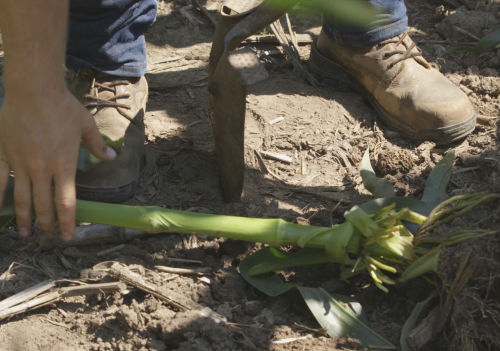
The second step is to extract the roots from the soil. Once you have the roots removed, you can chop off the top of the plant and use what remains as a handle to carry the roots.
Soak and Wash the Roots
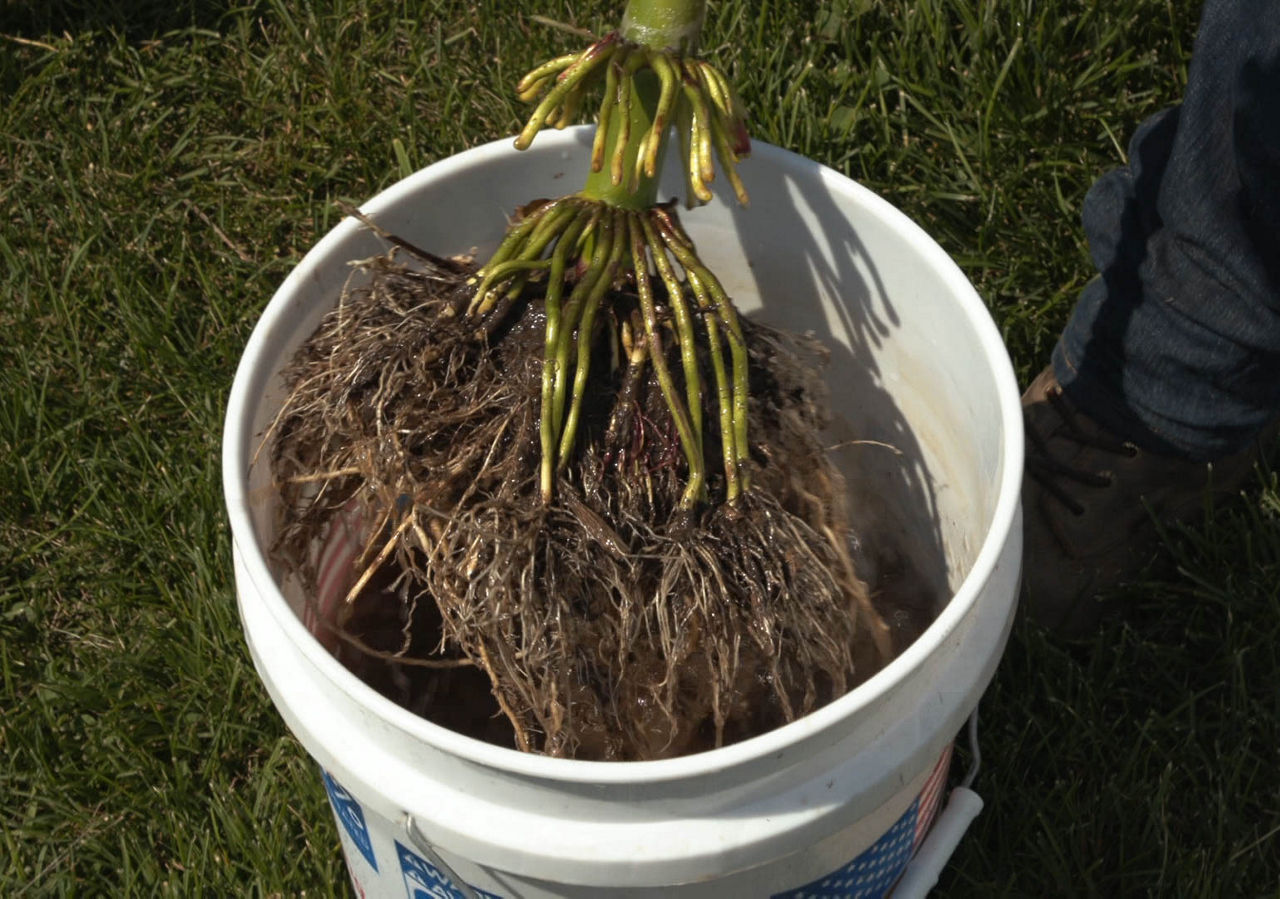
Shake loose any excess soil from the roots before soaking. Next, dunk the roots into a bucket of water for two to five minutes to rinse away more of the remaining soil. If there are corn rootworm larvae present within the roots, they will float to the top of the water.
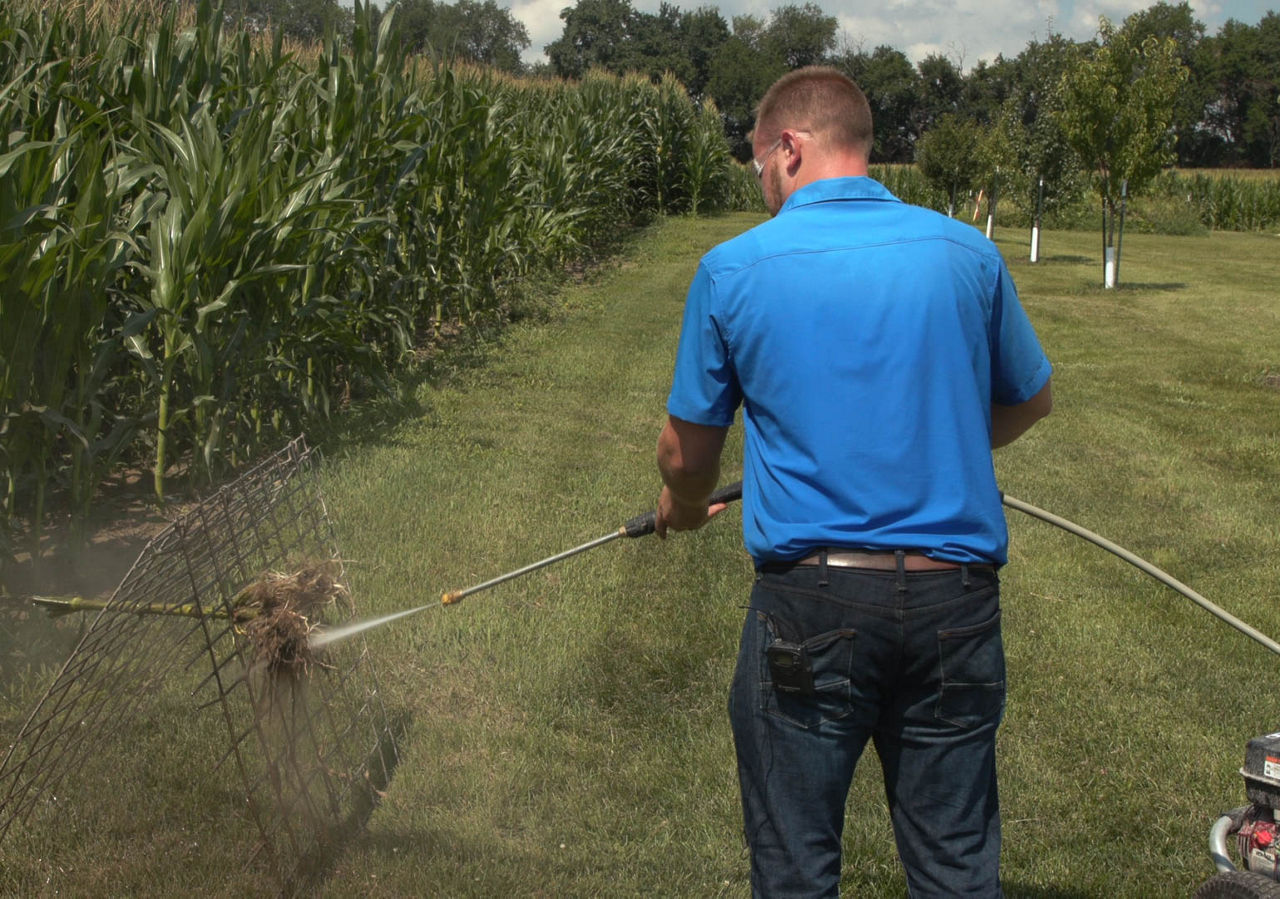
After soaking, spraying the roots with a hose or pressure washer will remove the remaining soil trapped in the roots.
Rate and Evaluate Node Damage
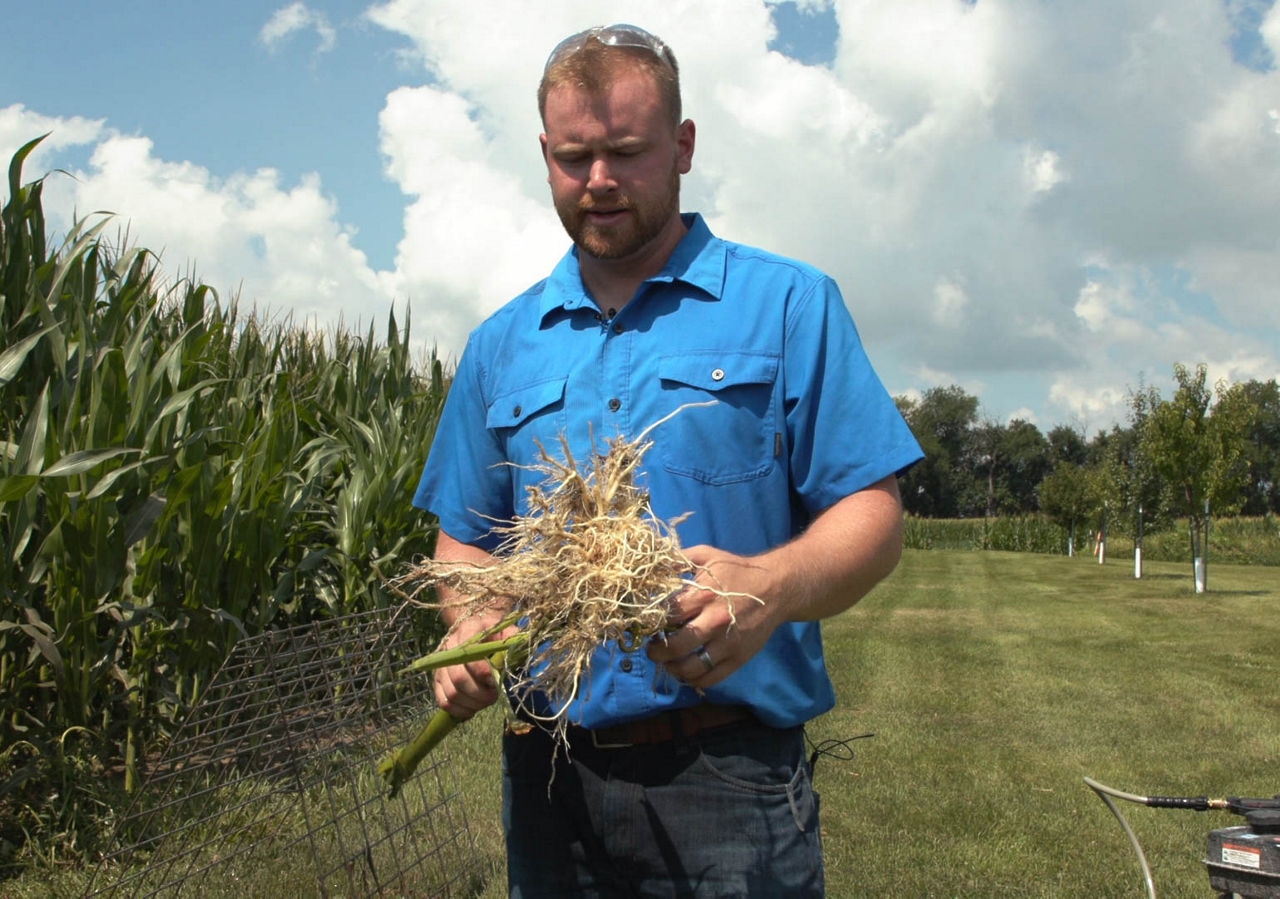
Finally, assess the potential damage. Node damage is rated on a node injury scale of 0-3, with 0 meaning no damage and 3 meaning three or more nodes have damage from root feeding.
Types of Damage to Look For
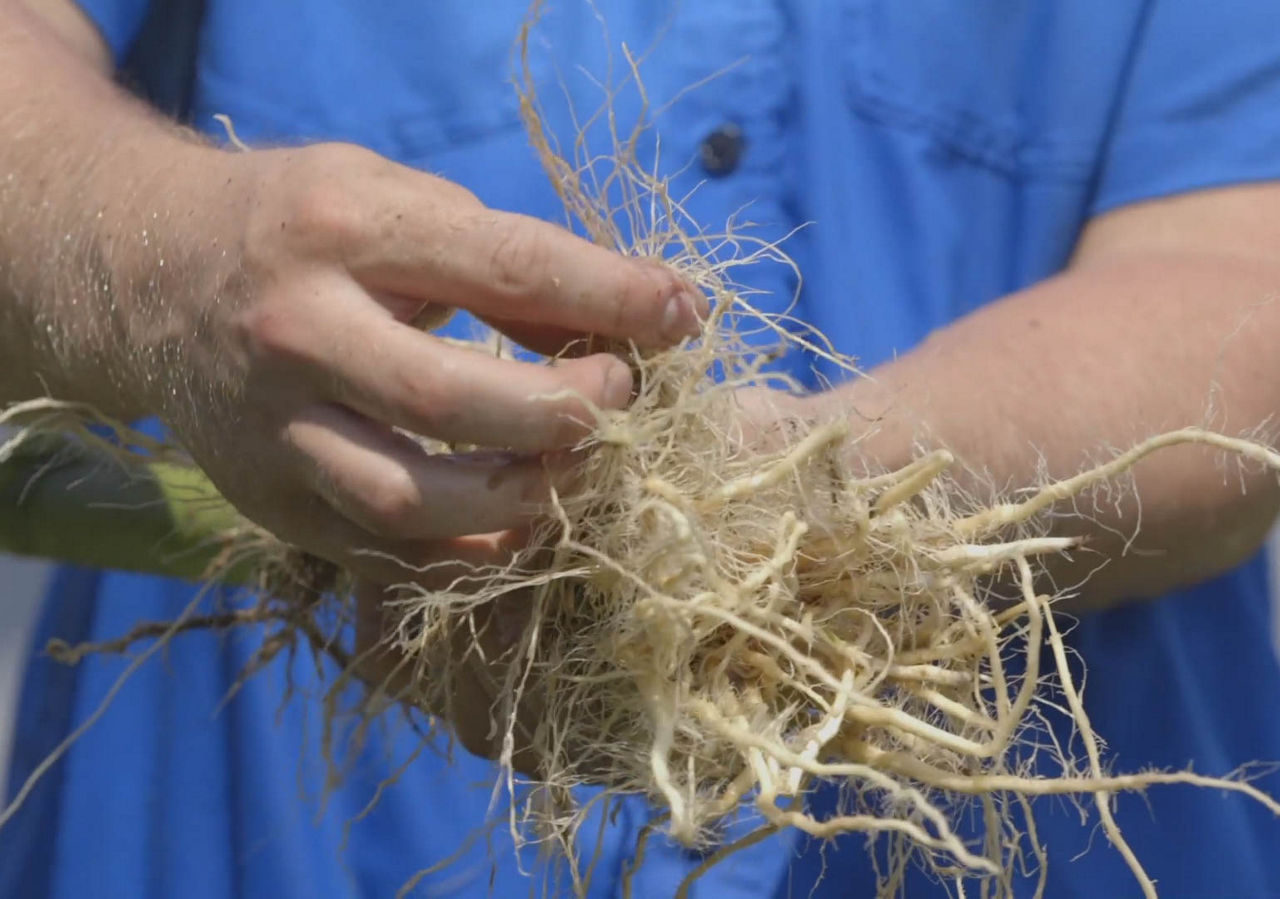
When looking at the roots, be sure to look for discoloration, scarring and channeling where corn rootworm feeding may have occurred.
Plan for the Future
If you find corn rootworm damage to your roots, it’s important to keep in mind that there is no known rescue treatment once damage has taken place. With the knowledge gained from this season’s root dig, you can now make adjustments to next season’s insect management plan. By planting SmartStax PRO with RNAi Technology the following season, you can rest assured you are protected against corn rootworm all season long.
Looking for more information on this topic, or have a question regarding anything else?